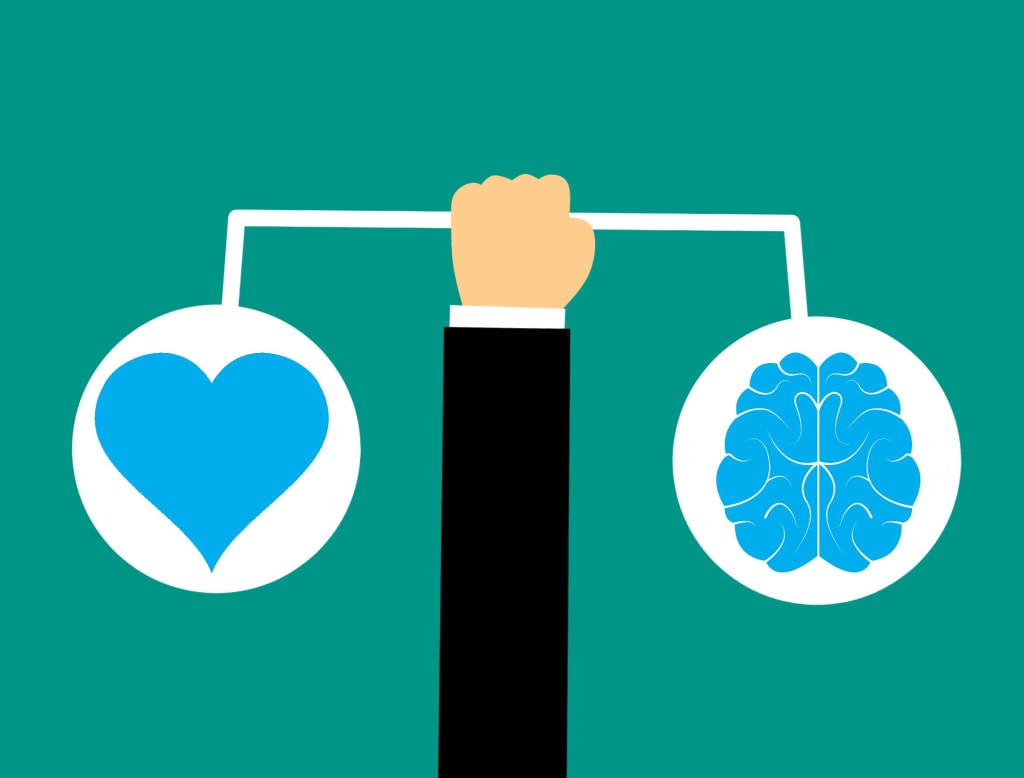
The Key to an Ideal Society
The city of Mumbai in India is the nation’s wealthiest part, with the highest number of millionaires and billionaires among all cities in the country. Mumbai is also home to Dharavi, one of the world’s largest slums. Spanning a little over two square kilometres, and home to some seven hundred thousand people, it stands as one of the most populated places in the world, with the people all living below the national poverty line. However, Dharavi’s population manages to prosper in its own way, with people building their own small businesses such as textile work, electric businesses, and food stands. The people of Dharavi are all well aware of the poor economic state their tightly knit community finds itself in, thus going to great lengths in helping one another, volunteering, and providing charitable help to their neighbours. Although when thinking of an ideal society we don’t picture Dharavi, one must keep in mind that ideal does not mean perfect. The key driving force behind an ideal society always has been, and always will be empathy. This essay will go into depth about the effect that empathy has on a community, Canada’s rapid decline in altruism and how we can all work together to fix the problem.
Dharavi, though one of the poorest areas in the world, still manages to produce a total of around one billion dollars per year. The property prices in the Mumbai slums are constantly going up every year, as that city is among the richest in the world, with new developers constantly making more space by tearing down slums and rehousing the people in apartment buildings. The overall response of current and former Dharavi residents has been one of remorse and sadness for losing their community, as it is inseparable, empathetic and reliable for those who live there. One Krishna Pujari, considered by the people of Dharavi as their “cable guy”, runs a small electricity business in the slum, which has been steadily growing in profit, along with his popularity. Krishna is also a volunteer in his community, fully aware of the poor economic state that his neighbours and peers are in- thus taking time out of his day to help build, tear down and rebuild shacks and living areas for them at no cost. Moreover, people in the Indian slums seem considerably happier with their lives than those in North America- although their lives are not, objectively speaking, beautiful. During an interview with Katherine Boo, author of Behind the Beautiful Flowers, a book about the people living in slums, she says “There was also an immense capacity for joy, in part, because the economic situation is so dire. One of the things that was really striking to me was the delight people had in their children. And it wasn’t framed as a challenge, and “some day, she’ll be X.” It was just a daily joy. There was also a real appreciation for the things in their lives that aren’t hard, the things that are funny.” Being in appalling situations, and faced with economic challenges on a daily basis helps one appreciate and be happy with the small things in life, such as their children, their neighbours, and the altruism of the community they reside in.
Canada has been heading down a sure, steady decline in levels of empathy and altruism over the past years. Although Canada donates around 12 billion dollars per year in charity according to Statistics Canada, its national income was 1.679 trillion dollars in 2017, meaning about 0.007% of all of Canada’s income is donated to charity- a number that seems considerably low compared to other countries. The Philippines for example, was the 17th most charitable country with 45%, and the 5th country based on volunteering rates with 44%, according to the World Giving Index, although their GDP per capita is only 0.07% that of Canada’s. One in every five people in the Philippines still live below the poverty line to this day. In 2016, Canada’s charitable donations rate has dropped to the lowest of the prior ten years, to only 21.3%. The research done by both The World Giving Index and Stats Canada proves that our nation is slowly but surely growing less altruistic in attitude, thus creating more problems for the citizens and residents of this country, increasing homelessness rates, and ultimately driving Canada on a road away from the ideal society.
Altruism nonetheless, is a problem that can be fixed by working together. Peter Singer talks about empathy in his TED Talk, “The Why and How of Effective Altruism,” and his essay “The Singer Solution to World Poverty.” He goes into great detail about the impacts that altruism has on a society. One does not have to be a billionaire such as Bill Gates to make an impact in the world. Singer explains the key problems in why the world nowadays lacks so much empathy, the most prominent one being selfishness. People often tend to purchase things they do not necessarily need, such as new clothes, accessories, a new phone, or eating out. One’s necessities can normally easily be covered with around a third of the average person’s annual salary. The rest of the money is usually spent on wants, which is where people have the tendency of becoming unexplainably selfish. A survey done by Stats Canada states that Canadians are of opinion that giving away 3% of their income to charity is a perfect amount. However, when 66% of their money is being spent on otherwise unnecessary, usually materialistic objects, the morals become conflicted. Although the people of Canada are headed on a downward spiral away from altruism and towards an enhanced concept of self preservation, putting themselves above everyone else, empathy is not a lost cause. As extensive research has shown, the human brain is naturally wired to be empathetic, bias-free and ultimately altruistic towards everyone from the earliest stages of childhood development. As long as each individual person works on becoming a better human, wether through donations, restraining from impulse buys, volunteer work or anything else of the sort, and keeping in mind that their effort does make a change, it is safe to assume that the drastic effects the lack of altruism has had on the human race are completely reversible. That is the first step we as a human species must take to build not a perfect society- but rather a perfect world.
Ultimately, to build the perfect, ideal society which people have dreamt of and attempted at creating for thousands of years, it is a team effort. People often choose not to donate or participate in volunteer work not due to their lack of altruism, but rather due to the false impression that their contribution will not make a difference. One can use that argument for anything from recycling a piece of garbage to voting, and in some ways, that is completely justifiable. Nevertheless, if everyone does their part in restoring Canada’s empathy levels, which a long time ago was a value Canadians held with pride, the inevitable result of this will be transforming our nation into one that will resemble an ideal society. The change starts with one person.
Sources:
Posted by Guest Blogger. “How Generous Is Your Neighbourhood? Find out!: CanadaHelps - Donate to Any Charity in Canada.” CanadaHelps, 3 Mar. 2015, https://www.canadahelps.org/en/giving-life/giving-strategy/how-generous-is-your-neighbourhood-find-out/.
Statistics Canada. “Volunteering and Charitable Giving in Canada.” Government of Canada, Statistics Canada, 15 Apr. 2016, https://www150.statcan.gc.ca/n1/pub/89-652-x/89-652-x2015001-eng.htm.
Philippines Among Most Generous Countries." Manila Bulletin, 7 Jan. 2013. Gale In Context: Global Issues, https://link.gale.com/apps/doc/A324046438/GIC?u=bcdc&sid=GIC&xid=4bf67851. Accessed 31 Oct. 2019.
Dharssi, Alia. “Charitable Giving in Canada Drops to 10-Year Low, According to Tax Data.” Global News, Global News, 16 Dec. 2016, https://globalnews.ca/news/3130108/charitable-giving-in-canada-drops-to-10-year-low-according-to-tax-data/.
Treleaven, Sarah. “What We Can Learn about Happiness from the Slums of India.” Chatelaine, 11 June 2014, https://www.chatelaine.com/health/what-we-can-learn-about-happiness-from-the-slums-of-india/.






Comments
There are no comments for this story
Be the first to respond and start the conversation.